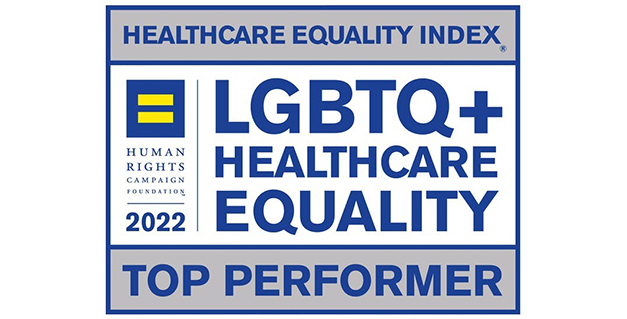Saint Mary’s Regional Medical Center has recently been acknowledged as a Top Performer in the Human Rights Campaign Foundation’s 15th anniversary edition of the Healthcare Equality Index (HEI), the nation’s foremost benchmarking survey of healthcare facilities on policies and practices dedicated to the equitable treatment and inclusion of their LGBTQ+ patients, visitors and employees.
“Every person deserves to have access to quality healthcare, be respected and heard by their doctor, and feel safe in the facility where they are receiving care,” said Tari Hanneman, Director of Health & Aging at The Human Rights Campaign. “Our HEI active participants are truly pioneering the healthcare industry by implementing robust, comprehensive LGBTQ+ inclusive policies that hopefully, because of their work, will become standard practice.”
The HEI evaluates and scores healthcare facilities on detailed criteria falling under four central pillars:
● Foundational Policies and Training in LGBTQ+ Patient-Centered Care;
● LGBTQ+ Patient Services and Support;
● Employee Benefits and Policies; and,
● Patient and Community Engagement.
“This acknowledgement from HEI speaks volumes about the inclusive and positive culture present at Saint Mary’s”, added Tiffany Coury, CEO of Saint Mary’s Health Network. “Equality and equity are key drivers not only in healthcare, but in societal and cultural arenas as well. I am so proud to be a member of a team that recognizes and showcases this on a daily basis.”
In addition to active survey participants, the HRC Foundation proactively researched the key policies for LGBTQ+ inclusion at over 1,300 non-participating hospitals. Unfortunately, these research hospitals were much less likely to have LGBTQ+ non-discrimination policies in place, which is a stark contrast to the near-perfect adoption by active participants. Among the researched hospitals in which we were able to find or obtain enumerated patient non-discrimination policies, only 70% have policies that include both sexual orientation and gender identity compared to 99% of HEI participants.


